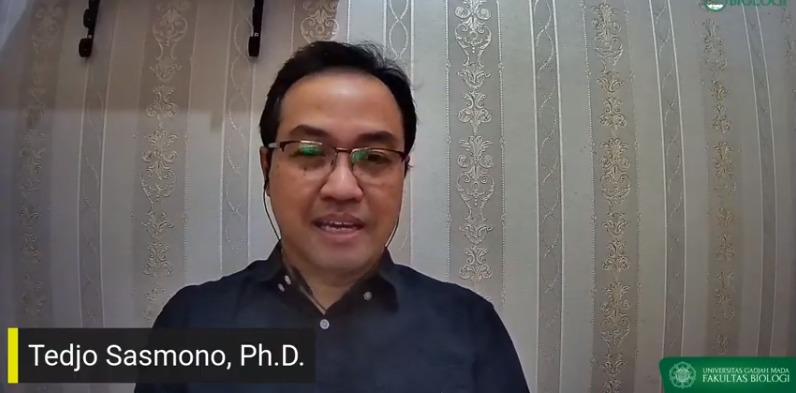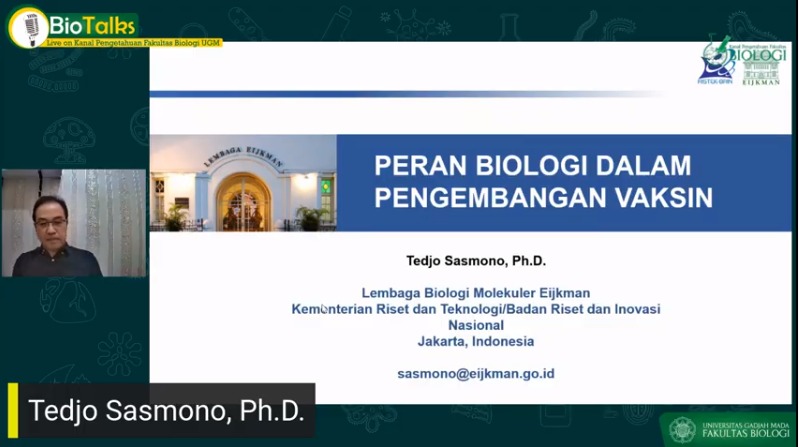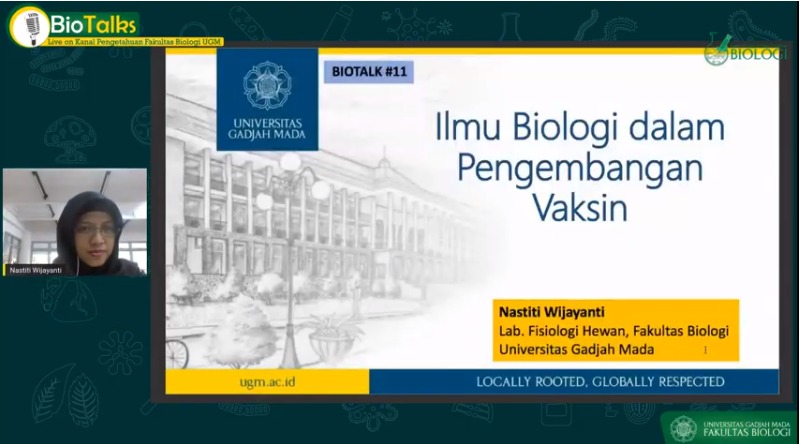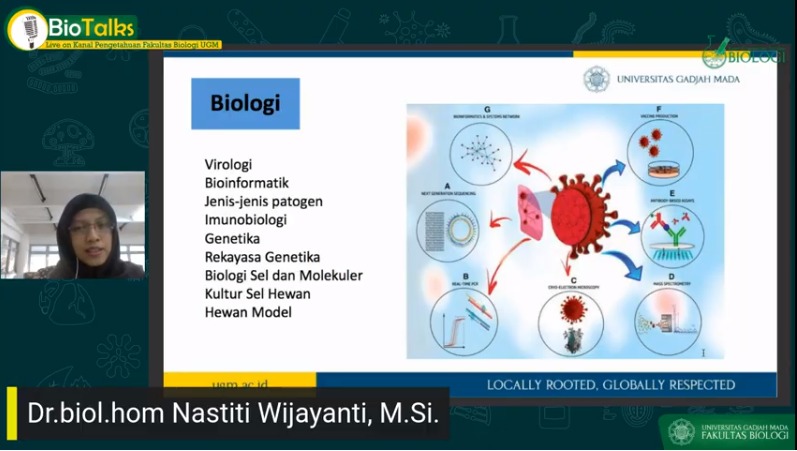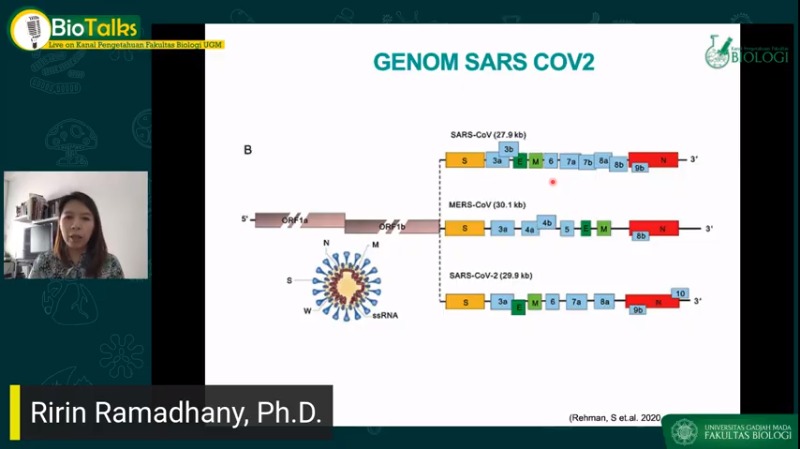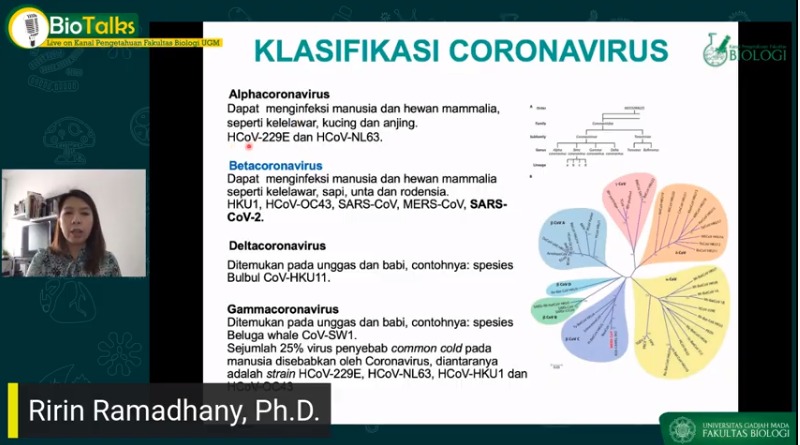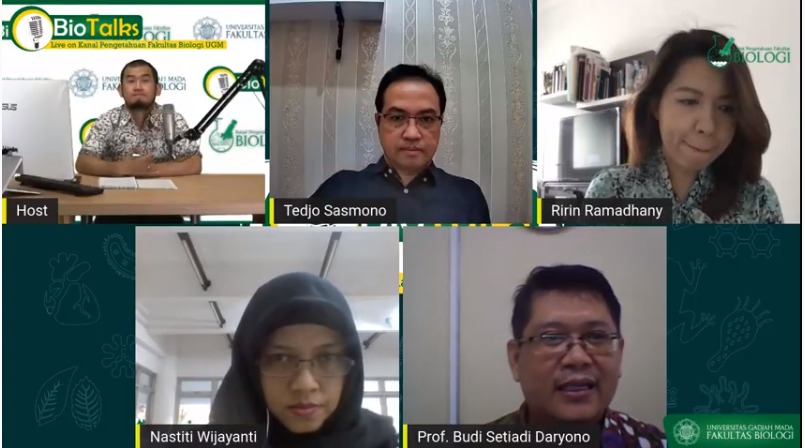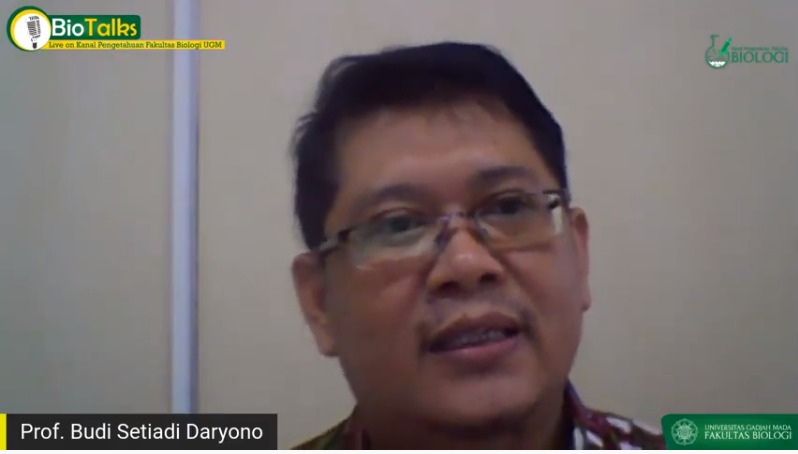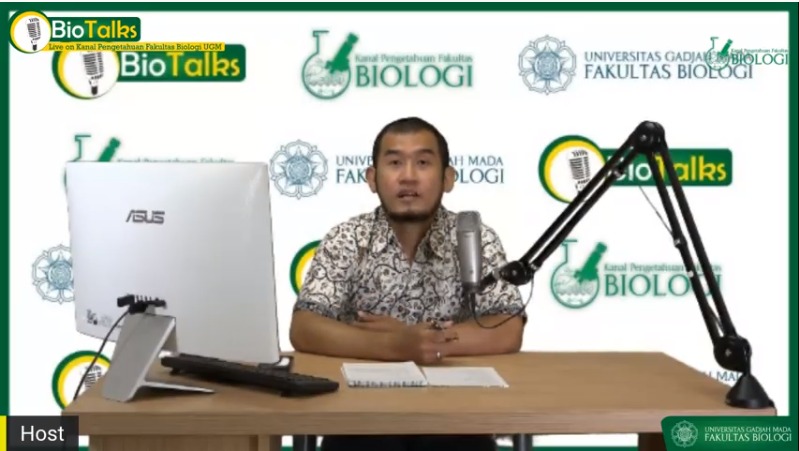From the first case of Covid-19, one year has passed. The pandemic is still not over, but it is starting to see a bright spot with vaccines being developed by researchers worldwide. Vaccine distribution was ongoing, and suddenly there was news that the Sars-Cov-2 virus was mutating and causing concern around the world. Vaccines are the main hope for ending the pandemic, so what is the role of the biologist? In response, the Faculty of Biology organized the 11th Biotalks, with the theme: Mutation of SARS-CoV-2 and the Role of Biology in Vaccine Development in Indonesia. It was held on Wednesday, December 30, 2020, inviting three speakers: Dr.biol.hom. Nastiti Wijayanti, M.Si. (Immunobiologist; Biology Alumni 1988), Tedjo Sasmono, Ph.D. (Eijkman Institute Molecular Biology Researcher; Biology Alumni 1989), Ririn Ramadhany, Ph.D. (Virology researcher; Biology Alumni 2002) and moderated by Fajar Sofyantoro, Ph.D.
The first speaker, Dr.biol.hom. Nastiti Wijayanti, M.Si. presenting a lecture on Biological Sciences in Vaccine Development. Vaccines can be developed from various platforms: synthetic peptides, RNA, DNA, recombinants, virus-like particles, etc. He explained that the manufacture and development of this vaccine is a work that takes a long time and involves many people; therefore, it needs synergy from all parties. Ririn Ramadhany, Ph.D., as the second speaker, discussed virus mutations and the role of biology in vaccine development. The Sars Cov-2 virus is rapidly undergoing genetic mutations, but it is still unknown what impact this will have on the vaccine being developed. The last speaker, Tedjo Sasmono, Ph.D., emphasized the importance of understanding basic science when studying S1 at the Faculty of Biology. Also, because of the high level of urgency, development of Covid-19 vaccine can be accelerated to around six months. It is proof that science is always developing and useful in anticipating the emergence of a pandemic.

